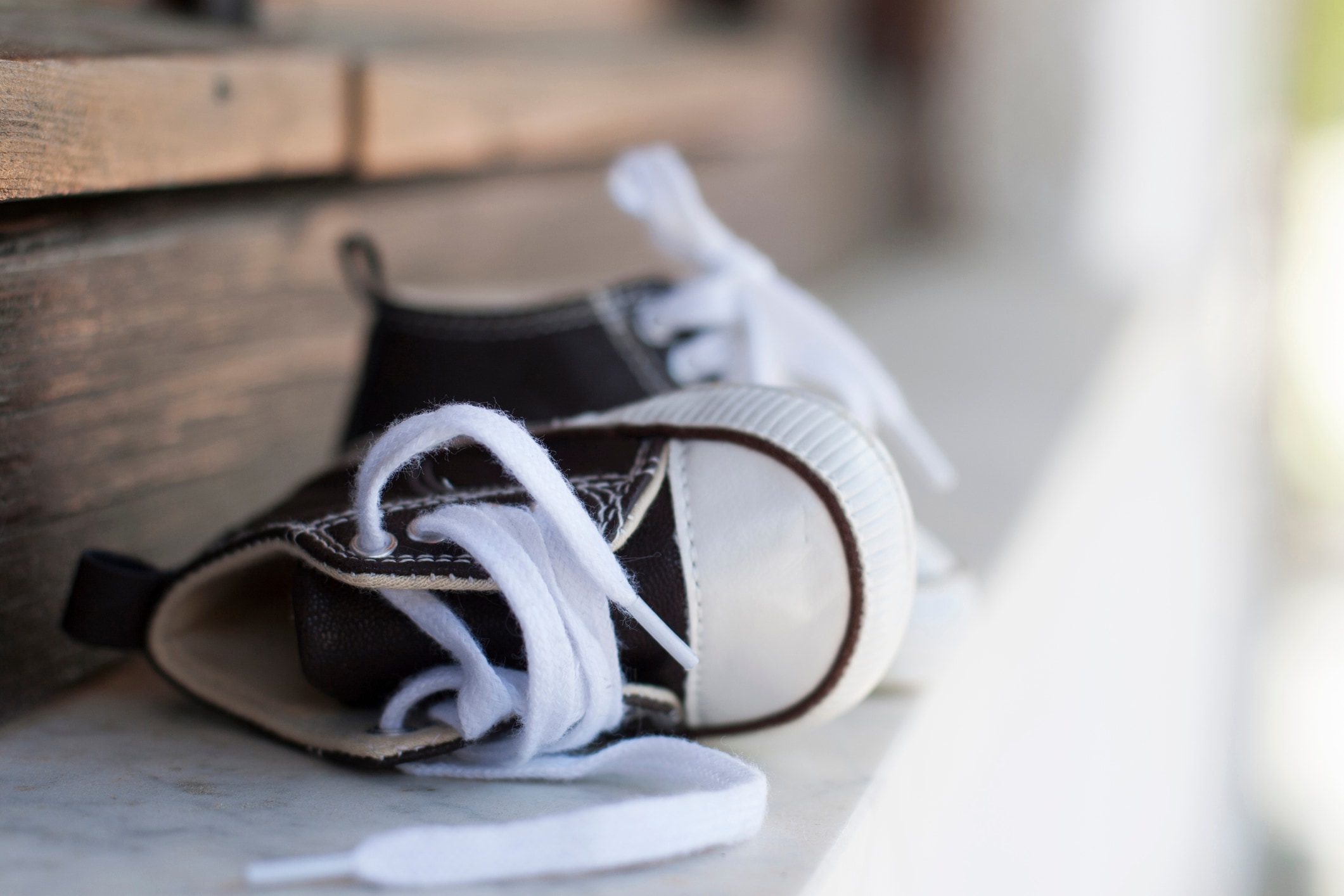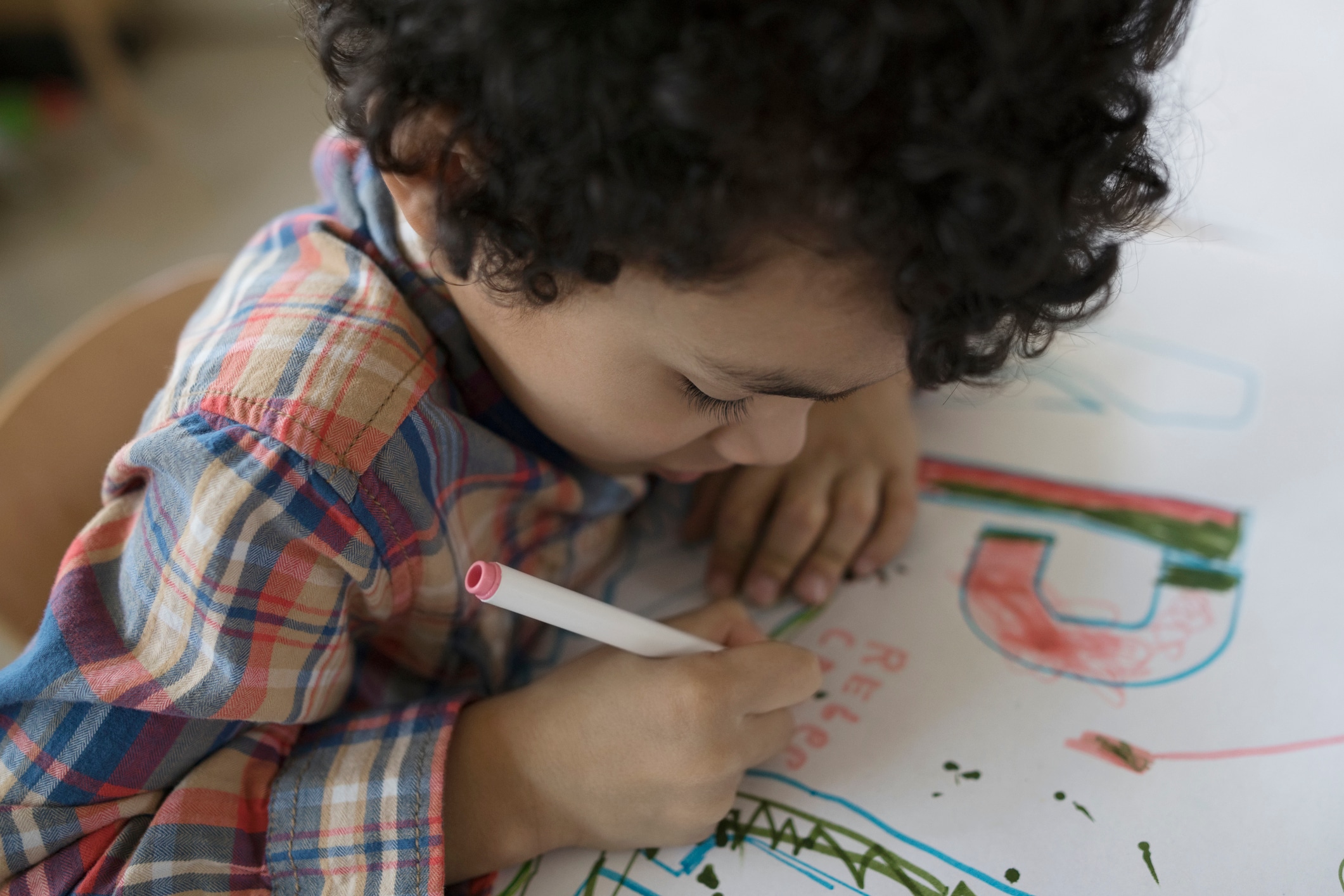It can be alarming when kids reach the age at which they figure out how to tell a lie. One minute they’re an angelic little baby. Then, the next minute, they’re standing there covered in black ink but swear they weren’t the one who drew with a Sharpie all over the couch. Lies are tricky, but one professional nanny on TikTok is making life a little bit easier for parents and caregivers who are dealing with dishonesty. Kayla Whitley, a nanny who uses her account to give caregiving tips and advice, shared two nanny-approved methods to stop kids from telling lies.
In her video, Whitley and three of the kids she cares for act out a common scenario: One little girl wants to play on the iPad, but she hasn’t finished her homework. Instead of being accusatory or trying to “trap” the girl in a lie, Whitley calmly asks, “Have you done your homework yet? I see you’re on your iPad, and you know you’re not supposed to do that.”
The little girl says she finished her homework already, but Whitley, knowing that’s not true, gives her another chance to make the right choice. “Are you sure? Because I feel like you might be telling me a story,” the nanny says. “I’ll give you one more chance to be truthful.”
The little girl then fesses up to her fib and heads off calmly to finish up her homework.
Whitley also offers a second option for dealing with dishonesty. In the second clip, the same scenario plays out with the little girl swearing she’s done her homework so she can keep playing with the iPad. This time, Whitley uses what she calls “natural consequences,” reminding the child that skipping her homework may cause her to get a bad grade or face other consequences in class. After thinking it over, the girl decides to give the iPad up and go finish her work.
In the video, Whitley never accuses the child of wrongdoing. She uses the word “story” instead of lie, and she never has to resort to raising her voice or giving ultimatums to get the child to comply. Since the video was posted, it has racked up over 31,000 likes and 275,000 views, and her gentle, logical approach to dealing with lying has many parents excited to try the methods with their own kids.
“I love how you give them two chances,” one person writes. “That’s a great learning tool. I think we automatically lie sometimes, not out of defiance but out of self protection.”
“I love how you don’t attack her,” another person adds. “You talked her through the situation so she understood why that’s not a good thing [to do].”
Some even offered their own tips for gently and effectively dealing with dishonesty from kids.
“Another option is to just say, ‘Hey Madison, I noticed you haven’t finished your homework. Let’s go finish, and you can have iPad time after,” one person suggests.
Another person adds, “We always just ask them to show us the completed homework. If it isn’t done, then we sit down and do it then.”
Though lying can be majorly frustrating for parents and caregivers, it’s actually considered a normal part of child development. Children younger than 6 have real difficulty distinguishing between reality and fantasy, according to the American Academy of Pediatrics (AAP). Once they are older, they are certainly capable of knowing and telling the truth, but they may tell lies to protect themselves from disappointment, disapproval or unwanted consequences.
“Parents who overreact and become extremely negative may push their child into a position of feeling that she needs to lie again and again to protect herself,” the AAP notes.
Whitley’s calm, straightforward approach gives kids the opportunity to take responsibility for telling the truth while also avoiding uncomfortable confrontations or harsh consequences. In follow-up comments, Whitley says it’s important to remember that kids aren’t always intentionally being “bad” when they tell a lie. One of the kids she nannies has attention-defecit/hyperactivity disorder (ADHD), and they sometimes struggle with telling lies due to symptoms like impulsiveness or forgetfulness. “[Lying] isn’t always malicious,” she explains.
Lastly, Whitley says she always considers the potential impact of harsh words and consequences, and she chooses to use the word “story” instead of “lie” to avoid saddling kids with a negative label. “The labels we put on kids stick with them,” she writes. “‘I’m a liar’ will create a false narrative that could have otherwise been corrected.”
Lying is one of those tricky behavior issues that can be so confusing for parents and caregivers to deal with. Luckily, social media makes it easier than ever to share the tips we learn along the way and tackle the biggest challenges of caregiving together.





